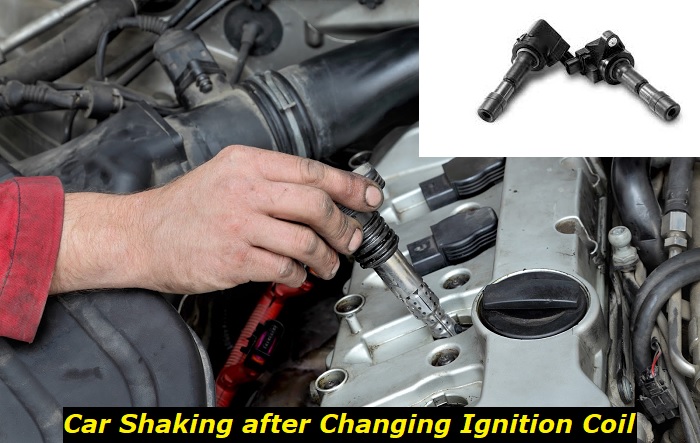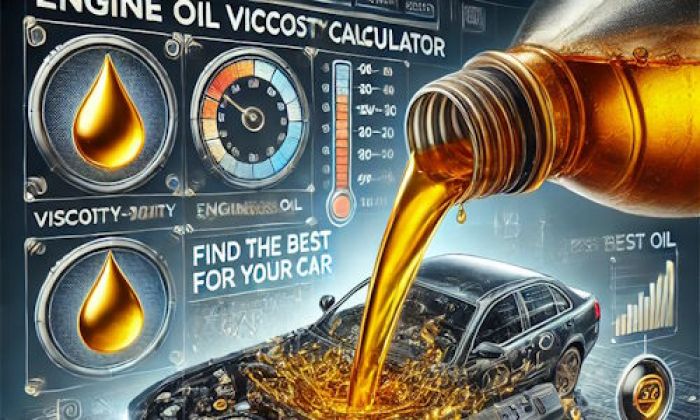If your car shakes after you replaced the ignition coil, you may have installed it incorrectly or the coil may have been initially bad. Maybe, there are problems with wiring, spark plugs, ECU, or other systems and modules that take part in the ignition process. You need to check everything once more because there is certainly a problem.
Ignition problems highlights
- DIY repairs:possible
- Tools needed:basiccar repair tools
- Commonreasons:ignition coils, spark plugs, wiring, power supply
- Time to repair:1 - 3 hours
- Price for parts:$50 - $250
- Can you drive?Yes
- Alternative solutions:limping, swapping spark plugs, swapping ignition coils

Symptoms of dying ignition coils and how often should you change them?
Dying ignition coils are not the most pleasant thing in your life as a driver. They are pretty hard to locate and if you love DIY repairs, you may change half of the engine until you understand that the culprit of all your problems is the malfunctioning coil. They don't throw codes until they cause a really bad misfire and they are hard to check.
But still, you can check the health of the coil if you have a good scanner and some experience in identifying symptoms of car problems.
First of all, here are the symptoms of a bad coil:
- shaking engine;
- significant loss of power;
- unstable idling RPM;
- stalling when idling;
- check engine light with P0300 code;
- the code may change to P0301, P0302, P0303, etc.
This error code means the engine is misfiring and can have zero in the end showing that several cylinders misfire or the ECU can't locate a certain cylinder. If the code has not a zero in the end, it denotes the number of a cylinder that is misfiring and it makes it easier for you to find the problem.
So, if you see that the symptoms show you the problem with some of the ignition coils, take an OBD2 scanner and read the fault codes. Even if there are no codes, you may look at the firing errors and easily locate which cylinder misfires.
For this, open the firing process monitor in the scanner software and see which cylinder registers more misfire occasions.
When you know which cylinder is causing the problem, it's quite easy to check whether it's the ignition coil. For example, you can swap coils between cylinders and see if the error code changes. If it is, the ignition coil is bad and needs replacement. If the code stays the same, there is another problem, and changing the coil won't help you.
So, why after installing the new coil does your engine shake? Let's see.
Car shakes after the replacement of the ignition coil - reasons
I'm sure that you already have several ideas about why your engine may shake if you read the article up to this point. But I want to list the possible reasons for this unpleasant situation so that you wouldn't have this problem anymore.
So, here are the reasons why your vehicle may shake after you replace the faulty ignition coil:
1. Improper fixation
Each ignition coil should be mounted properly. You should only use proper fasteners that are original. If you lost the bolts that were initially used to mount the ignition coil, you may buy new OEM bolts or some cheaper aftermarket options, but these bolts should be made for this engine. Using any other types of fasteners is not appropriate.
Or you may have torqued these bolts with improper power and now the coil is jumping in its place losing contact with the spark plug.
2. Bad coil
Unfortunately, not all parts that we buy are good. A lot of aftermarket parts are initially broken. Also, quite a lot of OEM parts are not good and need to be replaced immediately. Checking the coil before you install it in your vehicle is quite complicated, so most drivers will just install it and see how it works.
You shouldn't immediately think that the coil is good just because you bought it new. It may be not working or it may send the wrong signals. Also, you may have bought the wrong coil. You should choose parts for your engine using the VIN, not just the make and model of your vehicle.
3. Spark plug is bad
One more obvious reason why your car may be shaking even though you've just installed the new coil is because of the spark plug problems. The issues with your spark plugs may lead to all the same symptoms as the problems with the coils. If the spark plug is faulty and doesn't ignite the fuel, you will get the same issues including the P0300 code or one of its sister codes.
So, try swapping the plugs and see if the code changes, or just buy one new plug and install it into the engine to see if the problem disappears. Be careful and only use appropriate plugs. Also, don't overtighten the plug because you may damage the engine head.
4. Wiring or connection problems
When you install the new coil, you need to connect it to the wiring harness. For this, the system has a special clip and you don't need to worry much - this clip will only be fixed in one correct position. It's impossible to install it the wrong way. But still, some wires in the harness may not be OK. Also, the connection between wires may get lost.
This usually happens after water damage or physical impact. But in older cars, this may happen because of natural wear and tear. Checking and locating wiring problems is not that easy, so, in this case, you will obviously need professional help.
5. ECU problems
The spark in the plug is the result of current going through the coil. The current is sent to the coil by the battery. But the director of this process is the ECU. The ECU decides the precise timing of when to send the current to the coil so that it could fire the spark plug exactly at the needed moment.
If the timing of the firing is changed, the engine will not work properly. Most likely, it will throw different codes and will not even start and idle for a long time. Ignition timing is crucial, so if the ECU doesn't offer proper ignition timing, you will need professional help to understand why this happens.
Can you still drive if your car shakes with a bad ignition coil?
Well, if your vehicle shakes, and you suspect the coil, you can drive further. But long driving is not recommended. The problem is that the fuel is still injected into the affected cylinder. But as there is no spark at the correct time, the fuel isn't ignited. After that, the fuel will get to the exhaust system and explode in the catalytic converter. Some part of the fuel will even get down the engine and dilute the oil.
These problems are really serious and you should avoid them. So, driving for several minutes to get your car home or directly to the repair shop is a normal thing, in this case. But driving for hours on a highway is not recommended.
If you keep ignoring this problem and just driving a car for several days or even weeks, the minor and cheap-to-solve problem with the ignition coil may easily become a serious fatal issue with your engine.
Can you avoid the ignition coil failing?
First of all, you can't check the ignition coil and say that it's going to die in a month. It's impossible - they just work well till their last day and then they die or start acting weirdly. So, predicting the soon death of the coils is impossible, and avoiding these problems is not that easy.
But you can use several methods:
- read reviews about your vehicle model and see how many miles the coils usually live;
- also, if you have aftermarket coils, google them and see what longevity they usually have;
- 1000-2000 miles before the average lifespan is over, replace the coils in your vehicle;
- choose OEM coils or buy the parts manufactures by a good reputable brand;
- once you spot the symptoms of coil problems, immediately check and replace the faulty coils.
Also, remember that if one coil is dead, it's very likely that the other ignition coils are going to die very soon. It doesn't mean you should replace them in a pack, but pay attention to any engine problems that may appear and check the coils first.
If you still have any questions, please write them in the comments below!
About the authors
The CarAraC research team is composed of seasoned auto mechanics and automotive industry professionals, including individuals with advanced degrees and certifications in their field. Our team members boast prestigious credentials, reflecting their extensive knowledge and skills. These qualifications include: IMI: Institute of the Motor Industry, ASE-Certified Master Automobile Technicians; Coventry University, Graduate of MA in Automotive Journalism; Politecnico di Torino, Italy, MS Automotive Engineering; Ss. Cyril and Methodius University in Skopje, Mechanical University in Skopje; TOC Automotive College; DHA Suffa University, Department of Mechanical Engineering






Add comment